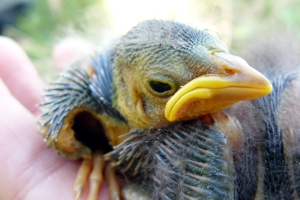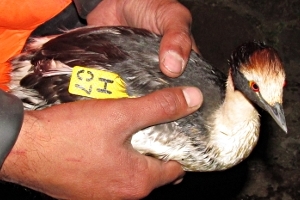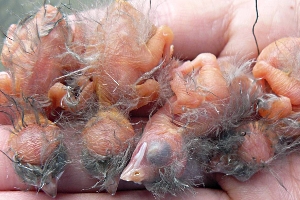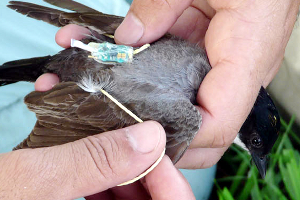A t the Ecology and Animal Behavior Lab (LEyCA) of the University of Buenos Aires we study vertebrate behavior and ecology. The Lab was founded in 1998 by Juan Carlos Reboreda with a strong research focus on cowbird’s brood parasitism, although research on social learning, life history traits and parental care has also been conducted. Currently, we incorporated research lines related to cooperative breeding, sexual selection and conservation biology. Our work combines experimental and observational analyses using a field and laboratory approach to explore evolutionary and adaptive pathways that lead to observed behavioral, ecological or genetic patterns.
 Brood Parasitism
Brood Parasitism
Avian brood parasites reduce the reproductive success of their hosts, selecting for antiparasitic defenses in host populations such as foreign egg or chick discrimination. In turn, host’s defences may favor improved adaptations in the parasite, and so on, leading to a coevolutionary process between parasites and hosts. Our research focuses on studying adaptations and counteradaptations in brood parasitic cowbirds (Icteridae: Molothrus) and their hosts.
Shiny Cowbird chick (A. López)
 Conservation of Threatened Birds
Conservation of Threatened Birds
Loss of biodiversity and species extinction are among the most critical issues concerning wildlife and nature. In particular, 14% of all bird species are threatened to some extent (IUCN Red List 2014). Our group studies diverse South American bird species of conservation concern with the aim to provide managers and policy makers with information to outline accurate conservation actions.
Hooded Grebe with wing tags (I. Roesler)
Sexual Selection
The evolution of elaborated traits in most species is mainly driven by sexual selection mechanisms. Particularly, among birds a variety of spectacular ornaments is observed, like wonderful colors, extravagant feathers or extremely larger tails. One mechanism favoring the expression of such traits is intersexual selection through mate choice, where individuals with more exaggerated characters are chosen.
Fork-tailed Flycatcher with geolocator (D. Tuero).
 Cooperative Breeding
Cooperative Breeding
In cooperatively breeding species some individuals forgo reproduction and help others to produce offspring. This form of cooperation entails benefits and costs for the parties involved, with the potential for conflicts over parental care to arise among members of cooperative groups. We are interested in studying cooperation and conflict over parental care in birds that are hosts of heterospecific brood parasites. Brood parasitism is likely to affect the fitness pay-offs of breeders...
Baywing chicks (A. López)
Comparative cognition
TBS
Turquoise-fronted parrot interacting with novel object during a neophobia test (J Lois-Milevicich)




